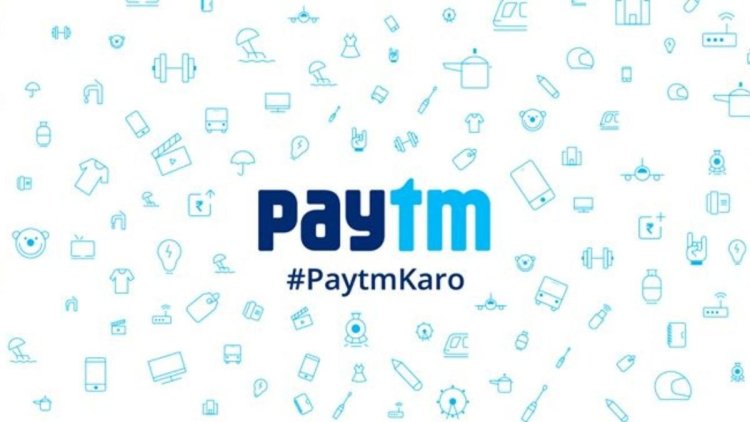The Rise and Fall of the Paytm Payments Bank: A Regulatory Dilemma
Paytm Payments Bank's rise and fall expose a regulatory dilemma. Explore the RBI's actions, Paytm's alleged violations, and the impact on the fintech industry. Is it stifling innovation or protecting consumers? Uncover the complexities and debate surrounding Paytm's future.

The Rise and Fall of the Paytm Payments Bank: A Regulatory Dilemma
Introduction
The rise and fall of Paytm Payments Bank have sent shockwaves through the startup industry, with the RBI effectively stopping the bank from conducting core business activities. This regulatory dilemma has raised questions about whether PayTM has committed serious violations or if the RBI is being too harsh on innovation. Let's delve into this complex issue and explore the implications for the future of Paytm Payments Bank.
Paytm Payments Bank: A Brief Overview
To fully comprehend the regulatory challenges Paytm Payments Bank faces, it's essential to understand the two primary components of the business. Firstly, there's the payments app, which functions similarly to Google Pay or PhonePe. This segment allows users to store money in their regular bank accounts while making transactions through the Paytm app. Notably, the recent regulatory actions have not had an impact on the payments app. The Paytm Payments Bank, which the RBI has prohibited from accepting new deposits, carrying out credit transactions, and topping up accounts, is the crucial factor. This move has effectively hampered the bank's ability to operate and has prompted concerns about the future of the company.
RBI's Regulatory Actions
The RBI's decision to curb PayTM Payments Bank's activities stems from persistent non-compliance and material supervisory concerns. Despite the company's denial of being investigated for money laundering, the RBI has cited multiple instances of non-compliance and has issued significant penalties over the years. With the details of these violations coming to light, it raises questions about the company's adherence to regulatory guidelines and its impact on the safety of customers' funds.
Industry Reaction and Way Forward
The startup industry, including founders and stakeholders, has expressed shock and disbelief at the RBI's stringent actions, labeling them as anti-innovation. However, the RBI has defended its decisions, emphasizing the need to protect customers and maintain regulatory compliance. Amidst this turmoil, Paytm Payments Bank faces the daunting task of migrating its millions of users to third-party banks while grappling with the potential disruption to retail customers and merchant partners. Moreover, the company's plummeting stock value and the possibility of ownership transfers add further complexity to its uncertain future. As this saga continues to unfold, the fintech industry's rapid growth and the challenges posed by regulatory oversight warrant a closer examination of the delicate balance between innovation and consumer protection.
Background of Paytm Payments Bank
Paytm Payments Bank was founded in January 2017 as a subsidiary of One97 Communications, an Indian financial technology company. The bank was aimed at providing digital financial services to millions of users, offering various banking and payment solutions. It quickly gained popularity and became a leader in the wallet business, boasting 90 million wallet users and 58 million fast tag users at its peak. However, the company has faced several regulatory challenges and penalties from the Reserve Bank of India (RBI) since its inception, raising concerns about its compliance and operational practices.
Regulatory Challenges and Penalties
Paytm Payments Bank has been at the center of persistent non-compliance and material supervisory concerns from the RBI. The bank received multiple penalties for various violations, including breaches of day-end balances, non-compliance with KYC guidelines, submission of false information, absence of KYC details, and PAN card violations. Additionally, the bank was fined for its failure to comply with regulations, further highlighting the regulatory challenges it has faced over the years. These penalties and violations have raised questions about the company's adherence to regulatory guidelines and its impact on customer safety.
Rumors and ownership concerns
Amidst the regulatory turmoil, rumors were circulating about potential buyouts of Paytm's wallet business by major players such as Jio and HDFC Bank, signaling a potential shift in ownership. Furthermore, concerns were raised about the separation between the ownership of Paytm Payments Bank and its parent company, One97 Communications, posing challenges to compliance with RBI regulations. The uncertainty surrounding ownership and potential buyouts added further complexity to the bank's future and raised questions about its stability and continuity in the industry.
RBI's Action Against PayTM
On January 31, 2022, the Reserve Bank of India (RBI) took unprecedented action against PayTM Payments Bank, effectively stopping the bank from conducting core business activities. This move sent shockwaves through the startup industry and led to a 20% crash in the company's stock value, resulting in a $2.5 billion loss in valuation. PayTM, once valued at $16 billion, now faces regulatory scrutiny and an uncertain future.
RBI's Regulatory Actions
The RBI's decision to restrict PayTM Payments Bank from accepting new deposits, conducting credit transactions, or topping up accounts was based on persistent non-compliance and material supervisory concerns. While the RBI has not openly disclosed the reasons for its actions, reports from CNBC TV18 have shed light on the bank's regulatory challenges over the years. Paytm Payments Bank has received multiple penalties, fines, and warnings from the RBI, raising serious questions about its adherence to regulatory guidelines and the safety of customers' funds.
Industry Reaction and Way Forward
The RBI's actions were met with shock and criticism from the startup industry, with claims that the regulator was being anti-innovation and anti-business. However, the RBI has defended its stance, emphasizing the need to protect customers and ensure compliance with regulatory standards. As PayTM Payments Bank grapples with the aftermath, it faces the challenging task of migrating its millions of users to third-party banks while addressing potential disruptions to retail customers and merchant partners. The uncertainty surrounding ownership, potential buyouts, and compliance issues further complicates the bank's future in the fintech industry.
Startup Industry's Reaction
The startup industry has been deeply shocked and concerned by the RBI's actions against PayTM Payments Bank. Many founders and stakeholders have expressed disbelief and criticism, labeling the actions as anti-innovation and anti-business. There is a sentiment that the RBI's stringent measures are stifling the ability of companies to innovate and disrupt traditional business models. The industry is surprised at the severity of the RBI's actions, questioning whether they are justified given PayTM's status as a pioneer in the startup ecosystem.
Industry's Criticism
The startup community has criticized the RBI for being overly strict and hindering the progress of innovative fintech companies. There is a belief that regulatory oversight should not impede the pace of innovation, especially in an industry that thrives on disruption and forward-thinking solutions. Many have expressed concerns about the potential long-term impact of the RBI's actions on the overall startup ecosystem and the future of fintech innovation in India.
Way Forward for PayTM and the Industry
As PayTM Payments Bank navigates through this regulatory turmoil, the startup industry is closely watching the way forward for the company. The potential migration of millions of users to third-party banks, uncertainty regarding ownership, and compliance issues have further complicated the bank's future. The industry is keen to see how PayTM and other fintech companies adapt to evolving regulatory standards while continuing to drive innovation and provide secure and reliable financial services to their customers.
Paytm's Violations and Penalties
Paytm Payments Bank has been at the center of persistent non-compliance and material supervisory concerns from the RBI. The bank has faced several penalties and violations, including:
-
Breaches of day-end balances and non-compliance with KYC guidelines
-
Submission of false information and fines of 1 crore rupees
-
Absence of KYC details and PAN card violations
-
Dominant and inoperative accounts
-
Freezing of accounts and wallets by law enforcement agencies
-
Fault in compliance regulations and fines of 5.39 crore rupees
These repeated violations raise serious questions about Paytm's adherence to regulatory guidelines and the safety of customers' funds. Despite these penalties and warnings, PayTM continued its operation without addressing these fundamental problems, leading to the RBI's unprecedented action to restrict its core business activities.
Impact on PayTM and its Shareholders
The regulatory actions taken by the Reserve Bank of India (RBI) have had significant repercussions on PayTM Payments Bank and its shareholders. The unprecedented move to restrict the bank from conducting core business activities has resulted in a 20% crash in the company's stock value, leading to a staggering $2.5 billion loss in valuation. As a result, Paytm Payments Bank, once valued at $16 billion, now faces an uncertain future and regulatory scrutiny.
Paytm's Compliance Issues
Paytm Payments Bank has faced persistent non-compliance and material supervisory concerns from the RBI, resulting in multiple penalties and violations. These compliance issues have raised serious questions about the company's adherence to regulatory guidelines and the safety of customers' funds. Despite the repeated warnings and penalties, PayTM continued its operations without addressing these fundamental problems, ultimately leading to the RBI's drastic action to restrict its core business activities.
Shareholders' Concerns and Rumours
The regulatory turmoil surrounding PayTM has led to a 41% fall in the company's shares in February alone, signaling widespread concern among shareholders. Additionally, rumors of potential buyouts of Paytm's wallet business by major players such as Jio and HDFC Bank have added further uncertainty to the company's future. While these rumors have been refuted, the ongoing regulatory challenges and ownership concerns have cast a shadow over PayTM's stability and continuity in the industry.
Possible acquisition attempts
The regulatory turmoil surrounding PayTM Payments Bank has sparked rumors of potential acquisition attempts by major players in the industry. Here's a closer look at the speculation and its potential impact:
Rumors of buyouts
There have been widespread rumors suggesting that industry giants like Jio and HDFC Bank have been in talks to potentially acquire Paytm's wallet business. These rumors have added a layer of uncertainty to PayTM's future and have raised concerns about the stability and continuity of the company in the industry. However, it's important to note that these rumors have been refuted by PayTM and official statements from potential acquirers, indicating that the buyouts may not materialize.
Founder's Meetings and Government Involvement
Vijay Shekhar Sharma, the founder, and CEO of Paytm, has reportedly engaged in discussions with government officials and financial authorities to address the regulatory challenges faced by the company. A meeting with the Finance Minister and top Department of Financial Services officials signals the company's proactive approach to navigating through the regulatory turmoil. However, it's worth noting that the government may have limited influence over the RBI's actions and regulatory decisions.
Impact on Company Valuation and Stakeholders
The rumors of potential acquisition attempts, coupled with the regulatory challenges, have significantly impacted PayTM's stock value, leading to a 41% fall in shares within a month. This has raised concerns among shareholders and stakeholders regarding the company's future and financial stability. The uncertainty surrounding ownership and potential buyouts adds further complexity to PayTM's current predicament.
Founder's Meeting with Government Officials
Vijay Shekhar Sharma, the founder, and CEO of Paytm, has reportedly engaged in discussions with government officials and financial authorities to address the regulatory challenges faced by the company. A meeting with the Finance Minister and top Department of Financial Services officials signals the company's proactive approach to navigating through the regulatory turmoil. However, it's worth noting that the government may have limited influence over the RBI's actions and regulatory decisions.
Impact on Company Valuation and Stakeholders
The rumors of potential acquisition attempts, coupled with the regulatory challenges, have significantly impacted PayTM's stock value, leading to a 41% fall in shares within a month. This has raised concerns among shareholders and stakeholders regarding the company's future and financial stability. The uncertainty surrounding ownership and potential buyouts adds further complexity to PayTM's current predicament.
Regulation vs. Innovation in the Fintech Industry
The rise and fall of Paytm Payments Bank have sparked a critical debate about the delicate balance between regulation and innovation in the fintech industry. The regulatory actions taken by the Reserve Bank of India (RBI) against PayTM have raised questions about whether the bank has committed serious violations or if the RBI is being too harsh on innovation. This dilemma has significant implications for the future of Paytm Payments Bank and the broader fintech landscape, prompting a closer examination of the complex relationship between regulatory oversight and technological advancement.
Challenges and Implications
The clash between regulation and innovation in the fintech industry has manifested through the regulatory restrictions imposed on PayTM Payments Bank, leading to a 20% crash in the company's stock value and a $2.5 billion loss in valuation. While the startup industry has criticized the RBI's actions as anti-innovation, the central bank has emphasized the need to protect customers and ensure compliance with regulatory standards. This conflict underscores the challenges faced by fintech companies in navigating regulatory oversight while driving technological innovation and disrupting traditional business models.
Complexity of Regulatory Oversight
The rapid growth of the fintech industry, estimated to be worth $150 billion by next year, has heightened the complexity of regulatory oversight. As fintech companies venture into providing digital financial services, including payments, loans, and investments, the role of regulators such as the RBI becomes crucial in safeguarding consumer interests and maintaining financial stability. However, the clash between regulatory compliance and technological advancement has underscored the need for a nuanced approach to foster innovation while ensuring consumer protection.
The Future of Fintech Innovation
The regulatory dilemma surrounding PayTM Payments Bank has broader implications for the future of fintech innovation in India and beyond. As the industry continues to evolve and disrupt traditional financial services, the balance between regulatory oversight and technological advancement will be a pivotal factor in shaping the industry's trajectory. Fintech companies, regulators, and industry stakeholders must collaborate to navigate the complexities of regulatory compliance and innovation, ensuring a sustainable and secure ecosystem for digital financial services.
Conclusion
The regulatory actions taken by the Reserve Bank of India (RBI) against PayTM Payments Bank have sparked a critical debate about the delicate balance between regulation and innovation in the fintech industry. The clash between regulatory oversight and technological advancement has raised significant concerns about the safety of customers' funds and the impact on the broader startup ecosystem. As PayTM Payments Bank navigates through this regulatory turmoil, the future of the company and the implications for the fintech industry remain uncertain. The industry, regulatory authorities, and stakeholders must collaborate to address compliance issues while fostering innovation and ensuring consumer protection in the evolving landscape of digital financial services.



 WaveTrendZ
WaveTrendZ 





















